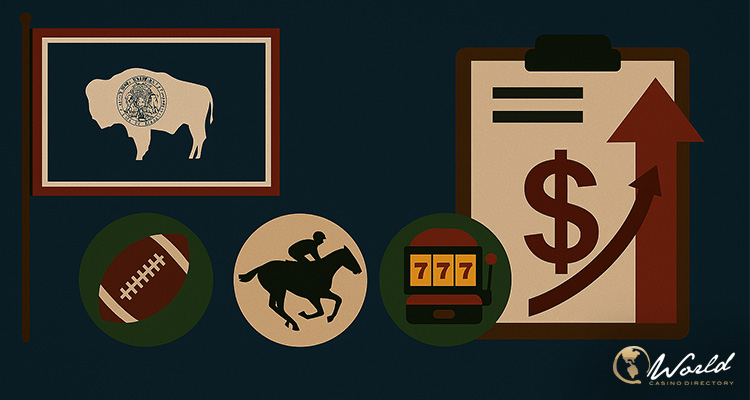A legislative committee in Wyoming has proposed sweeping tax hikes targeting the state’s gambling sector, signaling a move to tighten regulations and capture a larger share of the growing revenue from gaming activities. The measures, introduced during a meeting of the Select Committee on Capital Financing and Investments in Cheyenne, have sparked a range of reactions from both supporters and critics.
Proposed tax increases and oversight measures:
Among the proposed changes are significant increases in taxes for various gaming sectors, with the goal of addressing what proponents see as insufficient oversight and regulation in Wyoming’s burgeoning gambling industry. However, these proposals have also raised concerns about their potential impact on local businesses and the competitiveness of Wyoming’s gaming market.
The committee’s proposal includes a range of tax increases aimed at generating more revenue from gambling activities. Notably, it suggests doubling the state’s sports betting tax rate from 10% to 20%. This increase would align Wyoming’s tax rate with national averages, as the typical rate in other states stands at around 19%.
In addition, lawmakers are pushing for a rise in the tax rate for skill-based amusement games from 20% to 25%. This would directly affect businesses that host these games, including bars, truck stops, and fraternal organizations, where the games are limited to a maximum of four machines per location. The proposed tax hikes also include an increase on historic horse racing taxes, from 1.5% to 2.5%, along with an additional 0.4% reserved for the breeders’ fund.
Another key proposal is the establishment of a central monitoring system to track gaming machine activity across the state. This system would help verify revenues and ensure that gaming companies are accurately reporting their income for taxation purposes. The aim is to provide greater oversight in an industry that has rapidly expanded in recent years.
Committee Chair Tara Nethercott, a key proponent of the tax hikes, emphasized the need for stronger regulations and higher taxes in light of the gaming industry’s rapid expansion in Wyoming. She argued that Wyoming has been “quite generous” to gaming operators, providing them with nearly exclusive access to the market with minimal oversight.
Nethercott pointed out that as the industry has grown exponentially, it’s crucial for Wyoming to enhance its regulatory framework to match the increasing revenue from gaming. “As the industry has grown exponentially in recent years, Wyoming needs to establish enhanced oversight and revenues to match the growing needs from impacts in our communities,” she said during the meeting.
Furthermore, Nethercott suggested that the increased tax revenue could help fund necessary public services, such as addressing the state’s highway funding shortfall. She also noted that the proposed tax hikes are consistent with industry standards in other states.
Opposition to the tax hikes:
Despite the proposals’ potential for generating additional revenue, critics argue that these tax increases could hurt local businesses and hinder further growth in Wyoming’s gaming industry. Jonathan Downing, a representative for Cowboy Skill LLC, voiced concerns that the tax hike, particularly on skill-based games, would make Wyoming’s tax rate one of the highest in the country.
“Such a significant tax increase sends a discouraging message to investors looking to contribute to Wyoming’s economy,” Downing stated, as reported by Cowboy State Daily. He also argued that the hike would negatively impact small businesses, particularly those that host skill-based games in bars and other community-based establishments.
Other industry representatives echoed similar concerns. Mike Moser, executive director of the Wyoming State Liquor Association, expressed worry that businesses hosting skill-based games would pass the increased tax burden onto the local host businesses, rather than absorb the cost themselves. Moser emphasized that these businesses often provide entertainment and jobs for local workers and should not be penalized with such high tax increases.
In addition to the tax hikes on skill-based games, the proposed legislation also targets Wyoming’s pari-mutuel industry, which includes horse racing and simulcast betting. The committee suggested a tax increase on historic horse racing (HHR) from 1.5% to 2.5%, with the additional revenue earmarked for highway funding. While proponents argue that these funds are needed to support infrastructure, some industry representatives, like Tracy Lacock from Wyoming Downs, pushed back, noting the significant financial strain such increases could place on local operators and their employees.
Meanwhile, sports betting operators in Wyoming also face the prospect of higher taxes. The proposed increase from 10% to 20% on sports betting revenue would further align Wyoming with the national average, but critics warn that such increases could hurt consumer experience, as sportsbooks may raise costs to compensate for the higher tax burden.



